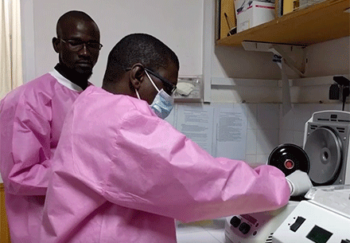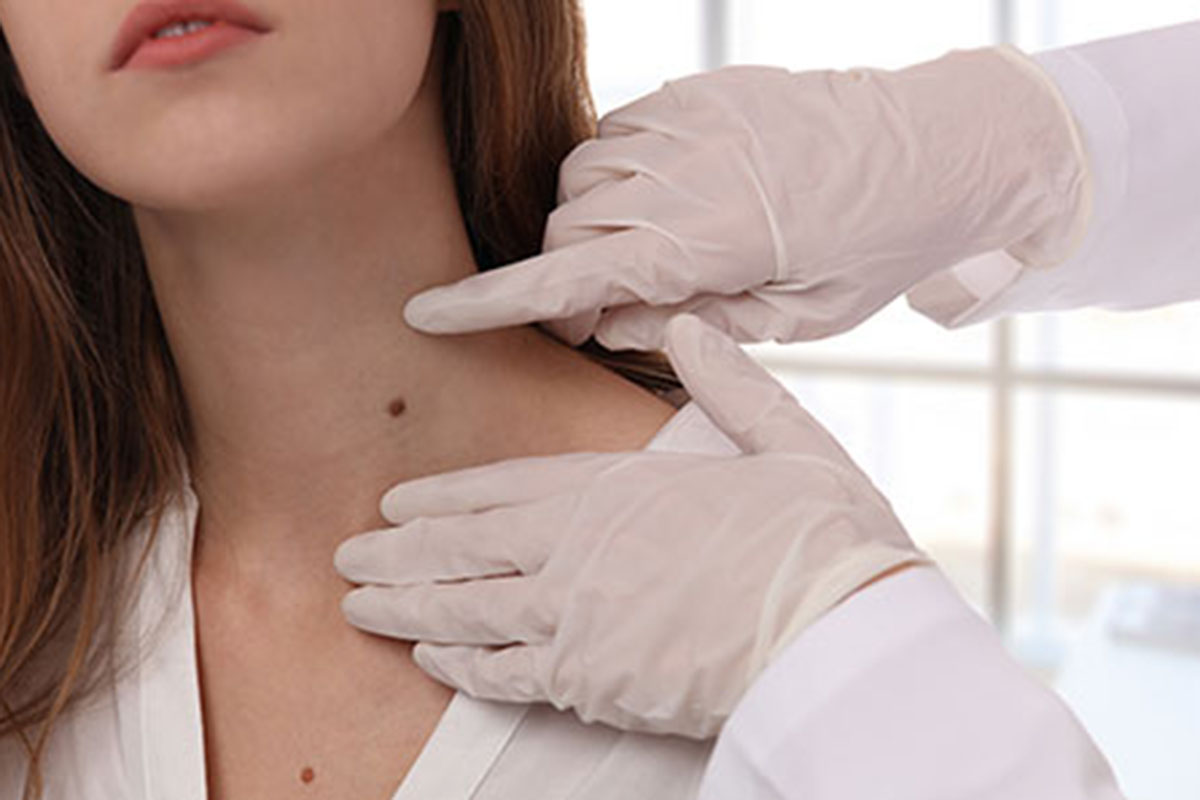
Researchers at the School of Medicine and UVA Cancer Center are seeing great promise in an experimental cancer drug that may help stop melanoma, along with other forms of cancer.
 Do I have skin cancer? I wonder this often. I’ve had tons of sunburns. Moles and freckles populate my skin everywhere. Dermatologists removed 2 of them. And there’s the family history of skin cancer to consider.
Do I have skin cancer? I wonder this often. I’ve had tons of sunburns. Moles and freckles populate my skin everywhere. Dermatologists removed 2 of them. And there’s the family history of skin cancer to consider.
But how do you know if you have skin cancer? What does it look like? Are you at risk? Find answers at UVA Health’s annual FREE skin cancer screening.
None of us should ignore the risk of skin cancer. There’s the scary fact that skin cancer left unchecked can spread to your lungs and brain. That’s why we offer skin cancer screenings and brought together this Skin Cancer 101 guide.
In our myths and facts article, learn that:
Of course, the best treatment for melanoma or any skin cancer is prevention. You need to use sunscreen more often than you might think.
You should also consider going to the dermatologist for screenings. If you’re at all unsure what to look for, you’ll want a specialist to do a skin check from head to toe.
At UVA Health, we offer the latest advances in skin cancer treatment, including treatment for the most serious form of skin cancer, melanoma.
Our experts have the skills to treat even the most difficult skin cancers. Take, for instance, what happened to Marcia Oglesby. She had melanoma on her finger. Doctors wanted to amputate. Getting a second opinion at UVA Health meant she kept her finger. That’s because we had skin cancer specialists who could work with a hand surgeon to perform a successful operation.
You have questions. Or maybe you just don’t know what you don’t know. The articles in this guide dig in. Keep reading — then make sure to share with those you care about.

Researchers at the School of Medicine and UVA Cancer Center are seeing great promise in an experimental cancer drug that may help stop melanoma, along with other forms of cancer.

With UVA dermatologist Mark Russell, MD Myth #1: Skin cancer only affects people with light or fair skin. Skin cancer is the most common cancer in the U.S. Although more common in those with a fair complexion, it does not discriminate against skin color, race, age or any other demographics.…

My battle with cancer started in 1994. There was an unusual mole on the back of my left shoulder blade. I had it removed and they told me it was stage 2 melanoma.

UVA dermatologist Mark Russell, MD, contributed this post. The sun is out, pools are open and summer is upon us. This may be the time that you think about using a tanning bed to get a jump on a summer tan. However, you may want to grab your sunscreen instead.…

Did you know? One person dies of melanoma every hour, and it’s the most common form of cancer in adults 25-29 years old. Every spring, we begin seeing the magazine articles and public service announcements reminding us to wear sunscreen to prevent skin cancer. But if you’re a fair-skinned 20-something…
Get stories & health tips every week